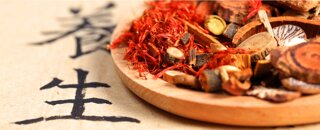- published on 20/05/2022
- 5min
Traditional Chinese Medicine in Singapore
Traditional Chinese Medicine, or TCM, is very popular in Singapore among locals but also expats, who are interested in an alternative healthcare. Traditional Chinese medicine in Singapore is officially recognised and there are numerous clinics to be found all over the city. So what is exactly traditional Chinese medicine? What does it cure? How can you find a TCM practitioner in Singapore?

Traditional Chinese Medicine: What is it ?
Traditional Chinese Medicine is an alternative medicine to « Western » healthcare that has been existing for about 2500 years in China and exported to many Asian countries then all over the world. This medicine embraces a philosophy that considers the body to be run by a vital energy called the chi or qi, which circulates in channels called meridians, connecting the organs and other vital functions of the body. Traditional Chinese Medicine studies the interactions of the different biological functions in the human body, according to the Yin Yang theory, which aims at balancing opposite or contrary forces that are actually complementary. It also aims at freeing the qi, body’s vital energy, to let it function again and drain the illness off. Traditional Chinese Medicine offers remedies for almost all diseases and conditions (headache, skin conditions, cancers, and so on) or addictions. However it is wise to first see a “classical” doctor in case of persistent syndromes or severe condition.
TCM practitioners in Singapore are registered by the TCM Practitioners Board. It is mandatory. The Singapore College of Traditional Medicine provides short-term or long-term trainings and courses, lectures and deliver official certificates and diplomas in order to be a TCM practitioner or practice acupuncture.
Up to now, the efficiency of Traditional Chinese Medicine has not been scientifically approved by the international scientific community that is why it is still labelled as an alternative medicine.
Traditional Chinese Medicine remedies
Traditional Chinese Medicine heals the body and the mind thanks to medicinal herbs, minerals, animal-based products, acupuncture, massages, diets and physical exercises. The most common practices are the following:
Acupuncture: it consists of pinning small, very thin needles on different reflex points along meridians all over the body or on a precise area in order to stimulate body’s vital energy. Acupuncture can be helpful for headaches, addictions, mood and anxiety disorders, allergies and so on. Make sure the needles are sterile.
Massages, also known as reflexology, stimulate vital energy and self-healing, when it comes to headache, backache, respiratory problems, stress, etc., by applying an appropriate pressure on reflex areas of the hands, feet and ears.
More than a hundred of medicinal herbs are used by Chinese pharmacopeia. In Singapore, the Health Sciences Authority regulates trade of herbs and controls their origin. Herbs can heal headache, stress, fatigue, respiratory problems, etc. However do not rely only on medicinal herbs to cure severe conditions. It is not recognised by the international scientific community to be efficient so far. Do not consume medicinal herbs without prescription and be careful about allergies.
Where can I find a TCM practitioner in Singapore ?
There are many TCM practitioners in Singapore. They are registered by the TCM Practitioners Board since the 2000 Traditional Chinese Medicine Act. You can find a doctor on their website.
There are also numerous TCM clinics of different sizes in Singapore. The most popular ones are the Chung Hwa Medical Institution and Chien Chi Tow, which have clinics in many locations in Singapore. You don’t need to make an appointment, simply go to the clinic, pay at the entrance to get a slip and wait in front of the doctor’s room.
Family clinics and smaller facilities are also located on the first floor of some HDBs or in malls.
Can I get reimbursed for Traditional Chinese medicine?
To help you cope with your medical expenses in Singapore, APRIL has created the MyHEALTH package, which will provide you with a comprehensive and fully flexible medical cover. If you opt for MyHEALTH, all your medical expenses for Traditional Chinese Medicine will be covered up to your plan’s limit. To be fully reimbursed, you just need to make sure that you choose a practitioner who is licensed or registered by the laws of Singapore.
Contact now one of our advisors to learn more about your insurance options.
Learn more
- Long-Term International Health Insurance06/2022
What are the vaccination requirements for my child's Dependent Pass in Singapore?
There are a number of things to think about when planning to move to Singapore, and visa are one such factor to keep in mind. In Singapore, children's visa applications can be a little…
- Long-Term International Health Insurance01/2024
Five things you should know about maternity in Singapore
Are you pregnant or consider having a baby in Singapore? Discover five things that you need to know about maternity to help you enjoy your pregnancy peacefully in the city…
- Long-Term International Health Insurance10/2021
Breast cancer awareness: signs, symptoms and prevention
According to the Breast Cancer Research Foundation, globally, breast cancer now represents one in four of all cancers in women. Since 2008, worldwide breast cancer incidence has…
- Long-Term International Health Insurance03/2018
Traditional Chinese Medicine in Hong Kong
In a city like Hong Kong where the ancient and the modern co-exist every day, it comes as no surprise that Traditional Chinese Medicine is deeply rooted into the local culture. Stress…